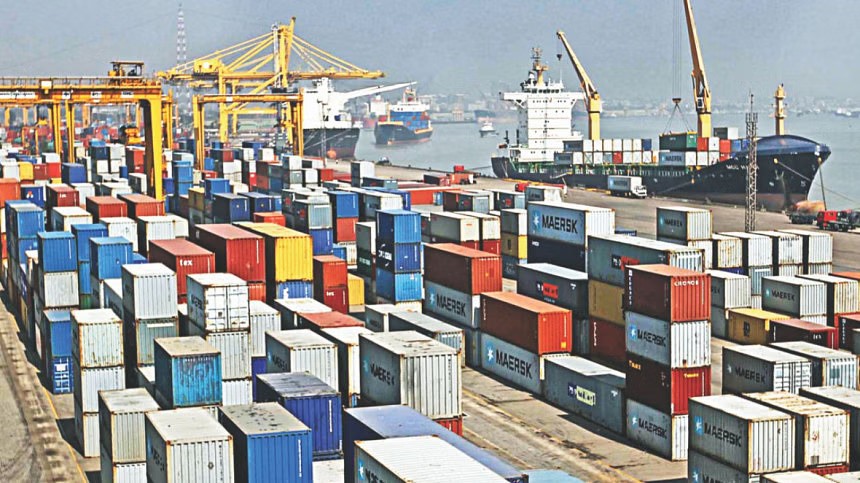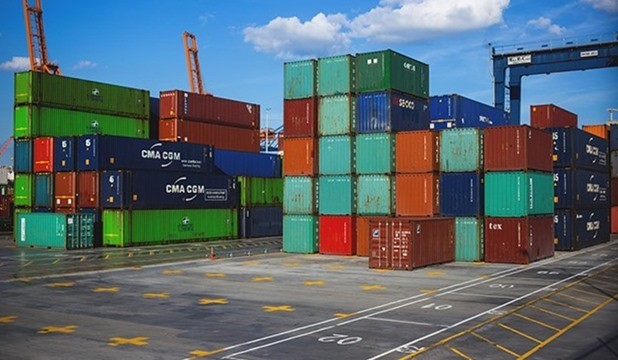According to business reports Mehr News Agency, nowadays, chemical industries play an indispensable role in the modern economy, providing essential materials needed for various fields of agriculture, pharmaceuticals, production, and more. The export of chemicals to various countries and the import of necessary materials have facilitated access to raw materials and diverse products, allowing different industries to access chemicals at competitive prices. In this article, we take a look at the prospects of the international chemical trade and examine the opportunities and challenges in the field of chemical exports and imports.
Chemical Exports and Imports

International trade in chemicals benefits all countries and different industries by stimulating competition, innovation, and increasing efficiency. Although there were fluctuations in this field in previous years, the chemical industries are still considered a major player in global markets.
With increased production in recent decades and increased demand in most markets, it is predicted that the level of production will continue to grow, and the export and import of chemicals will experience good growth in the next 10 years. Many countries, including Iran, have invested in this field and have prioritized innovation as the first priority. However, changes in international policies, changes in customer preferences, and technological advancements will also have a significant impact on the import and export of chemicals and should not be ignored. Some of the strategies recently planned in this area are as follows.
Investing in the production of chemicals in accordance with safety and environmental standards
Diversifying the chemical market to facilitate the supply of needed chemicals
Utilizing modern technologies to monitor the supply chain and manage customers
Monitoring market trends to track changes in global demand and new regulations
In recent years, Europe’s reliance on foreign suppliers has increased; the United States is the first export destination in the European Union, and China is introduced as one of the largest exporters of chemicals. Some of the countries playing a key role in chemical exports and imports are introduced below.
Germany, China, the United States, the Netherlands, South Korea, and Iran are the world’s largest exporters of chemicals.
The United States, China, Germany, Iran, and India import a wide range of industrial chemicals and specialty chemicals.
Some of Iran’s most important export products are introduced below:
Sodium carbonate: Sodium carbonate (soda ash) is a white, odorless powder with the chemical formula Na2CO3 that easily dissolves in water to create a colorless and clear solution. This product is widely used in the production of various detergents and more. The most important foreign markets for soda ash exports are Turkey and China.
Caustic soda: Caustic soda with the chemical formula NaOH is a white compound composed of Na+ cations and OH- anions. This product is used in the production of soap and various detergents.
Sodium nitrate: Sodium nitrate (sodium nitrate) is a white powder that has high solubility in water. This product is used as a valuable raw material for the production of various chemical fertilizers, renewable energy systems, and the production of various chemical products.
Ammonium nitrate: Ammonium nitrate is a crystalline powder that is very soluble in water. This product is used in the agricultural industry for the preparation of various nitrogen fertilizers. Additionally, ammonium nitrate is used in combination with other chemical fertilizers to optimize performance and increase productivity.
Opportunities in Chemical Exports and Imports

Some of the opportunities in chemical exports and imports include:
Expanding the market and increasing demand: International trade in chemicals allows producers to expand their markets beyond their country’s borders and enter new markets.
Access to various raw materials: Countries with limited resources can address their internal needs by importing chemicals and benefit from the production of chemical products.
Innovation: Entering global markets provides the possibility of technology exchange and companies benefit from existing innovations in this field.
Trade agreements: Trade agreements facilitate trade and cooperation between countries and make the export and import process much easier.
Entering new markets and increasing revenue: In developing countries, the demand for chemicals needed by various industries is increasing day by day, creating new opportunities in this field.
Threats in Chemical Exports and Imports
Despite all the advantages and opportunities that exist in international chemical trade, there are also challenges in this field that slow down the process of entering new markets. Some of these challenges include:
Regulatory requirements: Different countries have different standards for the consumption of chemicals, and complying with them may be difficult and costly for exporters.
Safety and environmental regulations: Storage and transportation of chemicals must be carried out according to predefined protocols. Additionally, in recent years, strict regulations have been considered to reduce environmental pollution, and any violation of these regulations may disrupt the process of chemical export and import.
International policies: Sanctions and new trade policies sometimes disrupt the export and import process and limit access to international markets.
Currency fluctuations: Exchange rate fluctuations affect product prices, profitability, and competition in international markets.
This article is an advertisement report and Mehr News Agency has no opinion on its content.
News code: 6492123

